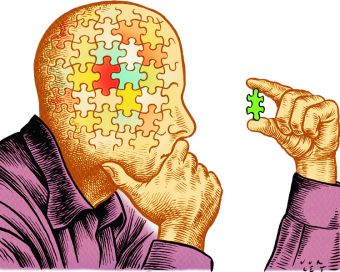Emotional Intelligence: How to find happiness and success

We all know someone who is incredibly bright and yet cannot seem to pull their life together. The brilliant student who flunks out of university, or the incredibly intelligent worker who can’t seem to get ahead in their company.
Over time, scientists have begun to study why standard intelligence alone isn’t enough to predict performance in an individual. They have realized that there is another type of intelligence that isn’t related to the standard cognitive intelligence – it’s called emotional intelligence.
What exactly is Emotional Intelligence
There are numerous ways of defining emotional intelligence. But for now, let’s say that it is the ability to be aware of your emotions and the emotions of others and then to use that knowledge to help manage the expression of emotions so that they foster success instead of cause roadblocks.
Those who have high levels of emotional intelligence, or EI for short, are able to understand the physical, mental, and social impact that negative emotions have on their bodies, minds, relationships, and ability to pursue and achieve goals. They then are able to moderate their own emotions so that their emotions support their activities and enhance their quality of life.
People with highly developed EI are proven to be more successful in the workplace because they can understand their emotions and why they behave the way that they behave. They can use their emotions as clues to what their body and mind are trying to tell them. And they can use their EI to truly understand others and their points of view.
Why you should learn how to develop your EI
There are social, mental, and even physical consequences to our ability to deal with our emotions. Since our emotions are a way our body can talk to us, we ignore them at our own peril. Not only will ignoring emotions ensure unhappiness, but it can lead to physical illness and even early death. It has been found that not only are people with a high level of EI more successful in their careers, but they also are healthier, happier, and enjoy better relationships with others.
Those with a high level of EI tend to experience a healthy balance of feelings like: Motivation, friendship, fulfillment, peace of mind, balance, freedom, appreciation, connection and desire.
Therefore, for our own general happiness and quality of life, it behooves us to learn to develop our emotional intelligence. With some basic understanding, you can alter the way you experience your emotions and the way you react to them in any situation.
The brain’s language: The source of emotions
It’s important to realize that emotions do have a physical basis in the brain. When external stimuli are received through one of our five senses, the signal is sent to the thalamus and ‘translated’ into the brain’s language of chemical signals. The majority of the signal is then sent to the area of the brain that is responsible for rational thought.
If the correct response involves an emotion, the signal is sent on to the amygdala, the brain’s emotional center. But at the same time that most of the signal is sent to the rational area of the brain for processing, a portion of it is sent straight to the amygdala, before the brain has had the chance to cognitively process the signal. In other words, a strong enough signal from our senses will trigger an immediate emotional response before we’ve been able to rationalize how we should respond.
The good news is that by understanding that our emotions are a natural, neurological response to the experience of strong stimuli, we can take the time to allow our rational brain to catch up. We can pay attention to what our emotions are telling us, but learn to manage our response to them.
The lesson here is that we cannot and should not try to escape, squelch, or ignore our emotions. Wherever we go, whatever we do, our emotions are with us. Your job is to learn how to listen to them, and to act according to your best interests.
But how can one do just that? You can find out by downloading and reading the free eBook “Emotional Intelligence” written by MTD Training.




